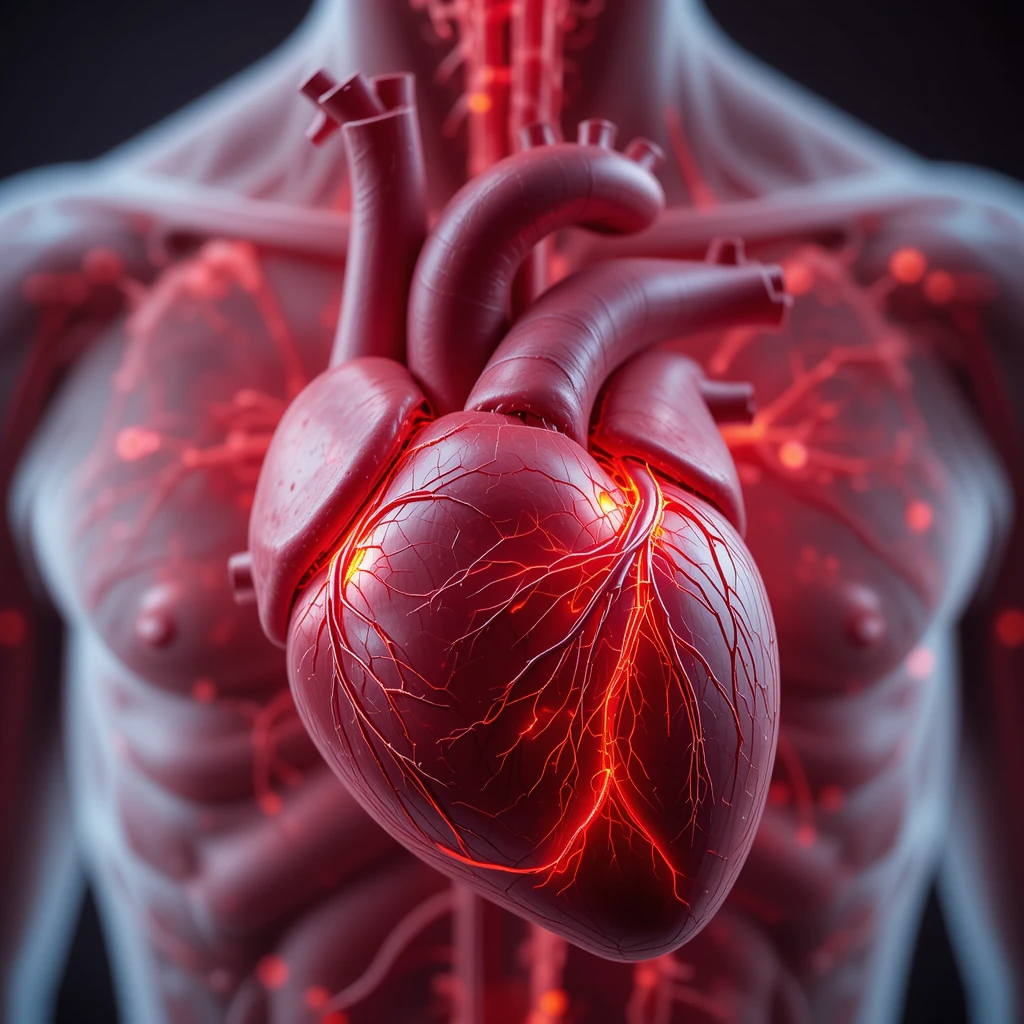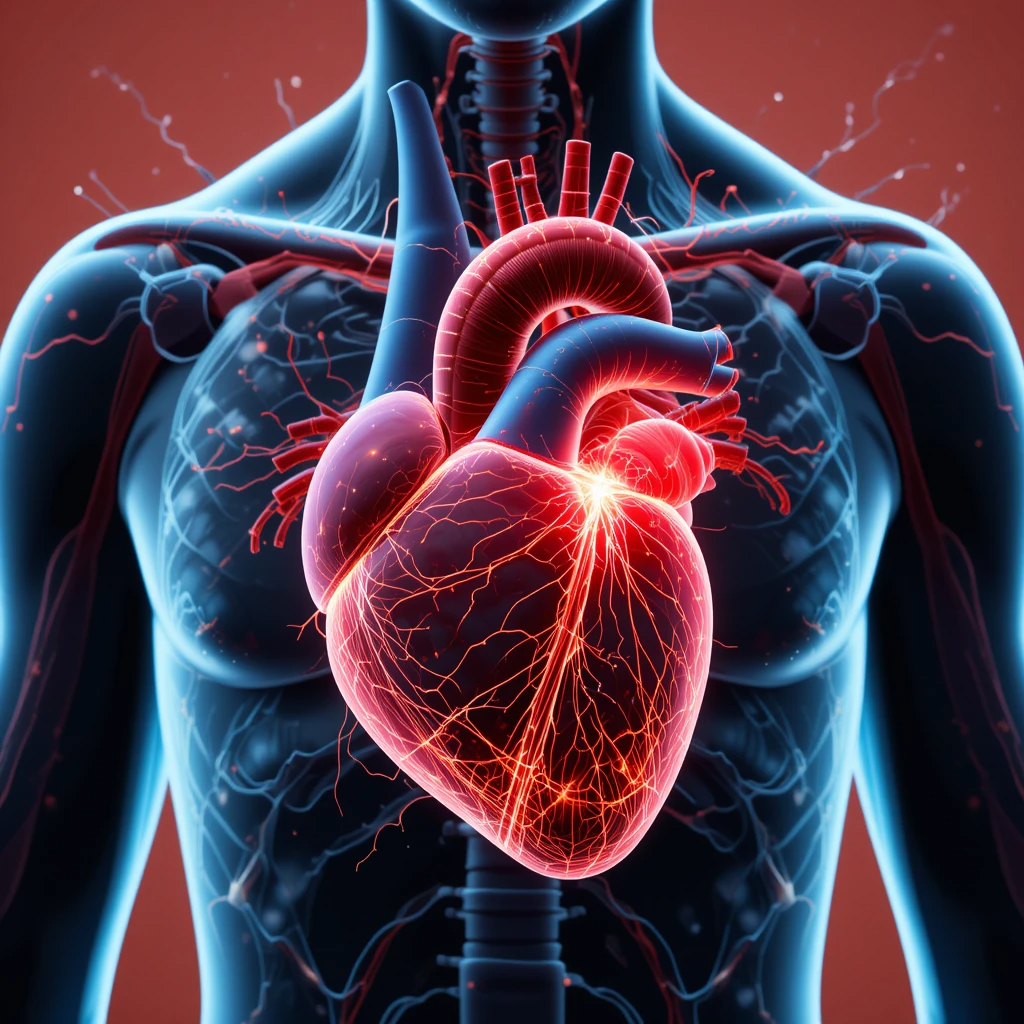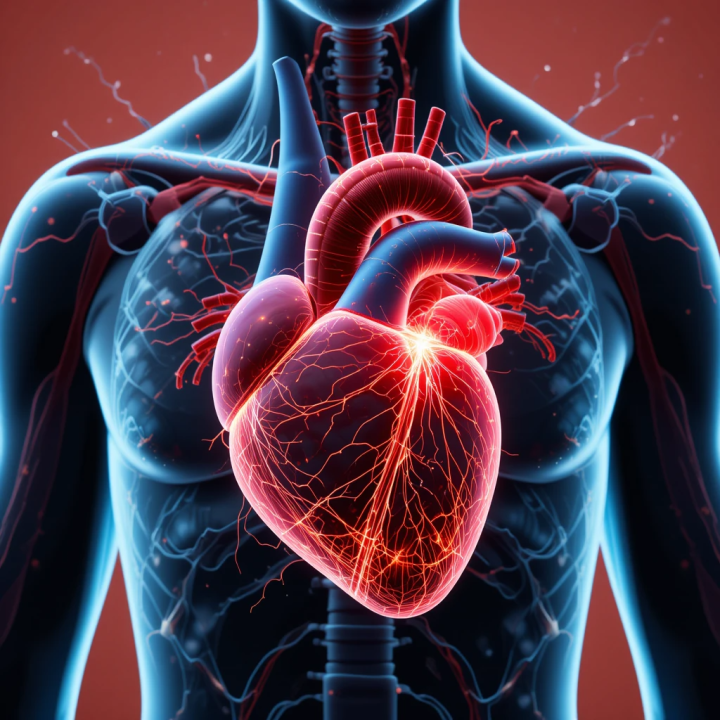Table of Contents
-
What Is Congestive Heart Failure?
-
How Common Is It?
-
Causes & Risk Factors
-
Types & Stages
-
Symptoms to Watch For
-
Diagnosis & Clinical Evaluation
-
Treatment & Management Options
-
Self‑Care Strategies & Lifestyle Tips
-
Prognosis & Life Expectancy
-
Living with CHF: Emotional & Practical Insights
-
Preventive Measures
-
Conclusion
1. What Is Congestive Heart Failure?

Congestive Heart Failure: A Comprehensive Guide
Congestive Heart Failure (CHF) is a chronic condition where the heart cannot pump enough blood to meet the body’s needs, leading to fluid accumulation (congestion) in tissues, lungs, and organs Encyclopedia BritannicaMedlinePlusWikipedia. The term “congestive” reflects this buildup, which increases pressure and forces fluid into tissues like the lungs, ankles, and abdomen Encyclopedia BritannicaMedicine.net.
2. How Common Is It?
-
In the United States, CHF affects approximately 5.8 million individuals, with about 550,000 new diagnoses each year Wikipedia.
-
Globally, an estimated 64.3 million people live with CHF MD Searchlight.
-
In the U.S., roughly 6.2 million adults are affected, with nearly 1 million new cases annually Verywell Health.
3. Causes & Risk Factors
Common Causes:
-
Coronary artery disease leading to reduced blood flow or heart attacks Cleveland ClinicMedicine.net
-
High blood pressure (hypertension) forcing the heart to work harder Cleveland ClinicVerywell HealthYale Medicine
-
Cardiomyopathy, including those due to genetics or injury Verywell HealthBrigham and Women’s Hospital
-
Heart valve disease, infections, congenital defects, and arrhythmias Brigham and Women’s HospitalCleveland Clinic
-
Lifestyle factors like obesity, sedentary habits, smoking, and alcohol use Cleveland ClinicYale MedicineVerywell Health
-
Chronic diseases such as diabetes and kidney disease Cleveland Clinic
Risk Factors:
-
Age over 65, sedentary lifestyle, high BMI, family history, and substance use all elevate CHF risk Cleveland Clinic.
4. Types & Stages of CHF

Congestive Heart Failure: A Comprehensive Guide
Types:
-
Left‑sided CHF: Heart can’t pump oxygen-rich blood to the body—most common type MedlinePlusCleveland Clinic.
-
Right‑sided CHF: Blood backs up in systemic circulation, often affecting lungs HealthMedlinePlus.
-
Systolic vs. Diastolic dysfunction: Involves impaired contraction or relaxation of the heart respectively PubMed+1.
-
Acute Decompensated CHF: Sudden worsening with fluid overload and breathlessness—medical emergency Wikipedia.
Stages (A–D):
-
Stage A: At risk for CHF, no symptoms yet.
-
Stage B: Structural heart disease present, asymptomatic.
-
Stage C: Symptoms are evident.
-
Stage D: Advanced, refractory heart failure symptoms. Cleveland ClinicHealth.
5. Signs & Symptoms to Watch For
Common symptoms include:
-
Shortness of breath, especially when lying down or during activity Cleveland ClinicThe Times of IndiaHealth.
-
Persistent cough or wheezing, possibly foamy or pink‑tinged The Times of IndiaCleveland Clinic.
-
Fatigue & weakness, due to low blood and oxygen flow The Times of IndiaCleveland Clinic.
-
Swelling (edema) in legs, ankles, abdomen The Times of IndiaBrigham and Women’s HospitalCleveland Clinic.
-
Weight gain, bloated stomach, loss of appetite, nausea Cleveland ClinicBrigham and Women’s Hospital.
-
Palpitations or rapid/irregular heartbeat Cleveland ClinicThe Times of India.
-
Nighttime urination (nocturia) Cleveland Clinic.
-
Additional signs: jugular venous distention, abnormal heart sounds, liver congestion MD Searchlight.
6. Diagnosis & Clinical Evaluation
Essential diagnostic methods include:
-
Medical history & physical examination
-
Echocardiogram to assess heart structure and function Encyclopedia BritannicaMedlinePlus.
-
BNP or NT-proBNP blood tests to evaluate heart stress levels PubMed.
-
ECG, chest X-ray, stress test, MRI, and cardiac catheterization as needed DMC HospitalPubMedMedlinePlus.
7. Treatment & Management Options
Medications:
-
ACE inhibitors, beta‑blockers: Reduce workload, improve survival PubMedReddit.
-
Diuretics: Reduce fluid buildup.
-
Other options: ARBs, aldosterone antagonists, hydralazine/nitrates, anticoagulants when needed RedditarXiv.
Procedures & Advanced Therapies:
-
Devices such as defibrillators, left ventricular assist devices (LVADs), heart transplantation.
-
In emergencies: intra‑aortic balloon pumps, mechanical support Reddit.
8. Self‑Care & Lifestyle Tips
Based on clinical guidance:
-
Understand your CHF type for tailored care Verywell Health.
-
Adhere to medications precisely Verywell Health.
-
Track weight daily to spot fluid retention Verywell HealthApollo 24|7.
-
Limit salt and fluid intake Verywell HealthApollo 24|7.
-
Exercise safely, like walking or light aerobic activity Verywell HealthApollo 24|7.
-
Get quality sleep and manage sleep disorders Verywell Health.
-
Avoid smoking, alcohol, drugs Verywell HealthApollo 24|7.
-
Regular check‑ups to adjust treatment plans Verywell Health.
-
Know when to seek medical help for worsening symptoms Verywell Health.
9. Prognosis & Life Expectancy
-
5-year survival rate is approximately 52.6% with treatment Verywell Health.
-
CHF typically reduces life expectancy by about 7 years, and up to 20.5 years in younger people aged 18–54 Health.
-
One-year survival rates: 80–90%; five-year: 50–60%; ten-year: around 30% Cleveland Clinic.
10. Living with CHF: Emotional & Practical Insights
A compassionate understanding of CHF emerges from patient and caregiver experiences:
“People can live for decades with CCF, especially if they can get the fluids under control with diuretics and avoid chest infections etc.”
— Reddit user Reddit
Another perspective:
“A cardiology fellow once simplified heart failure to me as ‘the heart is unable to pump blood enough to keep up with the demands of the body.’”
— Reddit user Reddit
Emotional support from friends, family, and support groups is vital in managing CHF and its psychological impact Health.
11. Preventive Measures
-
Manage high blood pressure, cholesterol, and diabetes
-
Maintain a healthy weight
-
Engage in regular physical activity
-
Avoid smoking, limit alcohol, stick to a low-sodium diet
-
Early detection through regular health evaluations improves outcomes Verywell Health.
12. Conclusion
Congestive Heart Failure is a serious yet manageable condition when addressed with timely care, medical adherence, and healthy lifestyle habits. Understanding its causes, types, symptoms, treatments, and self-help strategies improves both survival and quality of life. If you or someone you know exhibits symptoms, don’t delay consulting a healthcare provider.



